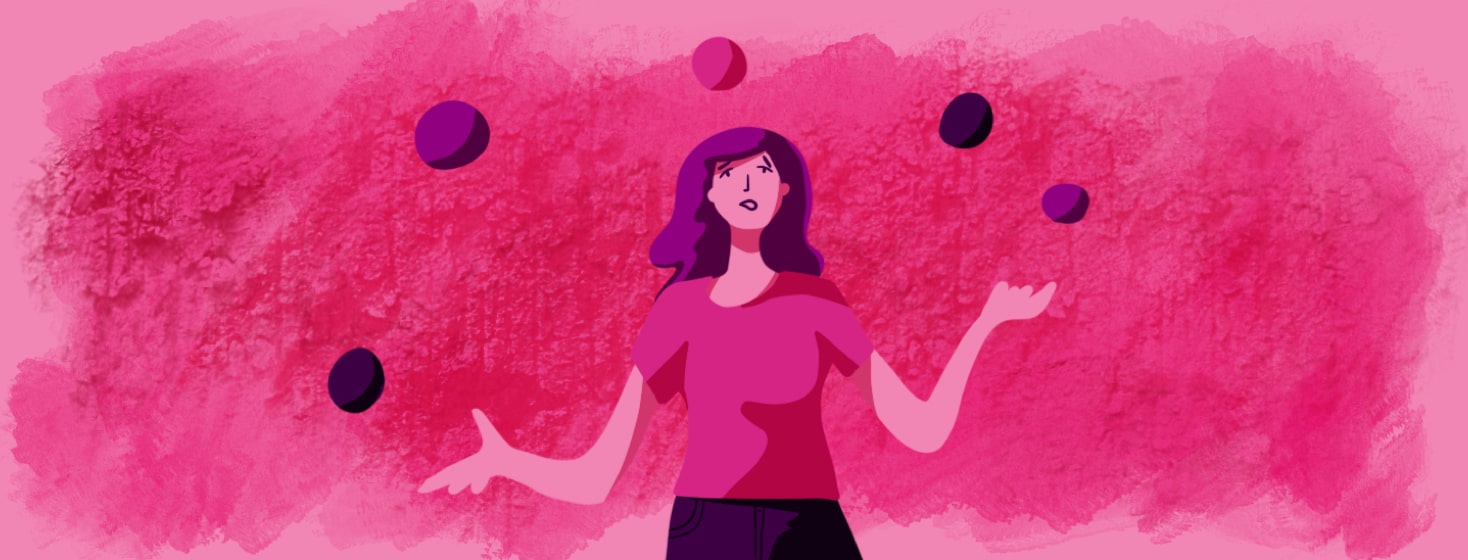How Other Chronic Conditions Affect My Sleep Apnea
I am new to the CPAP world. I have only had my continuous positive airway pressure (CPAP) machine for 8 months or so. Every day, I seem to find a new challenge. When I first received my CPAP, I thought it would solve all of my problems. No matter how much I learn about living with and balancing multiple chronic illnesses with sleep apnea, the hope for an answer and a cure never really goes away. I thought my energy would increase and my other chronic conditions would improve as well. What happened was, of course, the opposite.
Balancing multiple chronic illnesses
Little did I know, CPAP came with its own challenges. It took me a couple of months to adjust to my mask, but I was still tired most of the day. Being chronically sleep-deprived made my other conditions flare, which in turn affected my sleep. Chronic illness is a vicious cycle.
Along with severe sleep apnea, I have been diagnosed with hidradenitis suppurativa, delayed sleep-wake phase disorder, PCOS, IBS, ADHD, anxiety, and depression. Each diagnosis comes with a new set of issues that affect my sleep. Symptoms that affect my sleep include:
- Chronic pain
- GI issues (upset stomach, severe nausea, dizziness, heartburn, etc.)
- Anxious and spiraling thoughts
- Panic attacks
- Limited mobility due to bandages, abscesses, etc.
More "typical" health issues
This does not include typical issues like allergies or menstrual cramps. It is frustrating to use my CPAP every night when these issues occur. All I want to do is sleep, but it’s challenging when everything hurts. It feels like everything is against me.
A normal person would be speechless at the amount of work it takes me to get a good night's sleep. I follow a strict sleep routine with many steps before even getting into bed.
This or That
What do you need more right now?
My "normal" nightly routine
A person who is not chronically ill does things like make dinner, pack lunch for work, shower, and take care of other “normal” responsibilities. However, I have to follow additional steps before I can put my CPAP mask on.
Before bed, I have to do wound care for my HS, which is a painful endeavor. I then have to take my medications, use UV blocking glasses, shut off TV’s and put away my phone, and do breathing exercises to relax. I also have to treat any random symptoms, like nausea or dizziness. If my anxiety is too high or the pain is unbearable, sleep is out of the question.
Even after adjusting to the CPAP machine and mask itself, using these tools can trigger other symptoms as well. For example, CPAP air pressure can cause heartburn, which can aggravate IBS. This requires me to work closely with my doctor for sleep apnea and my gastroenterologist. Coordination of care makes living with sleep apnea a lot easier.
Considering alternatives
What I have found is that sleep apnea requires me to slow down. Since starting this journey I have implemented a sleep routine, addressed my chronic fatigue, and started thinking about alternative ways to manage my chronic conditions. When I started focusing on my sleep, I learned to better manage my other conditions. I check in with myself more often and can better manage my mental illnesses with therapy.
Chronic illness requires balance. When everything is not balanced it affects not just 1 part of a person, it affects the whole.
How do you balance multiple chronic illnesses with sleep apnea? Please share a comment.

Join the conversation